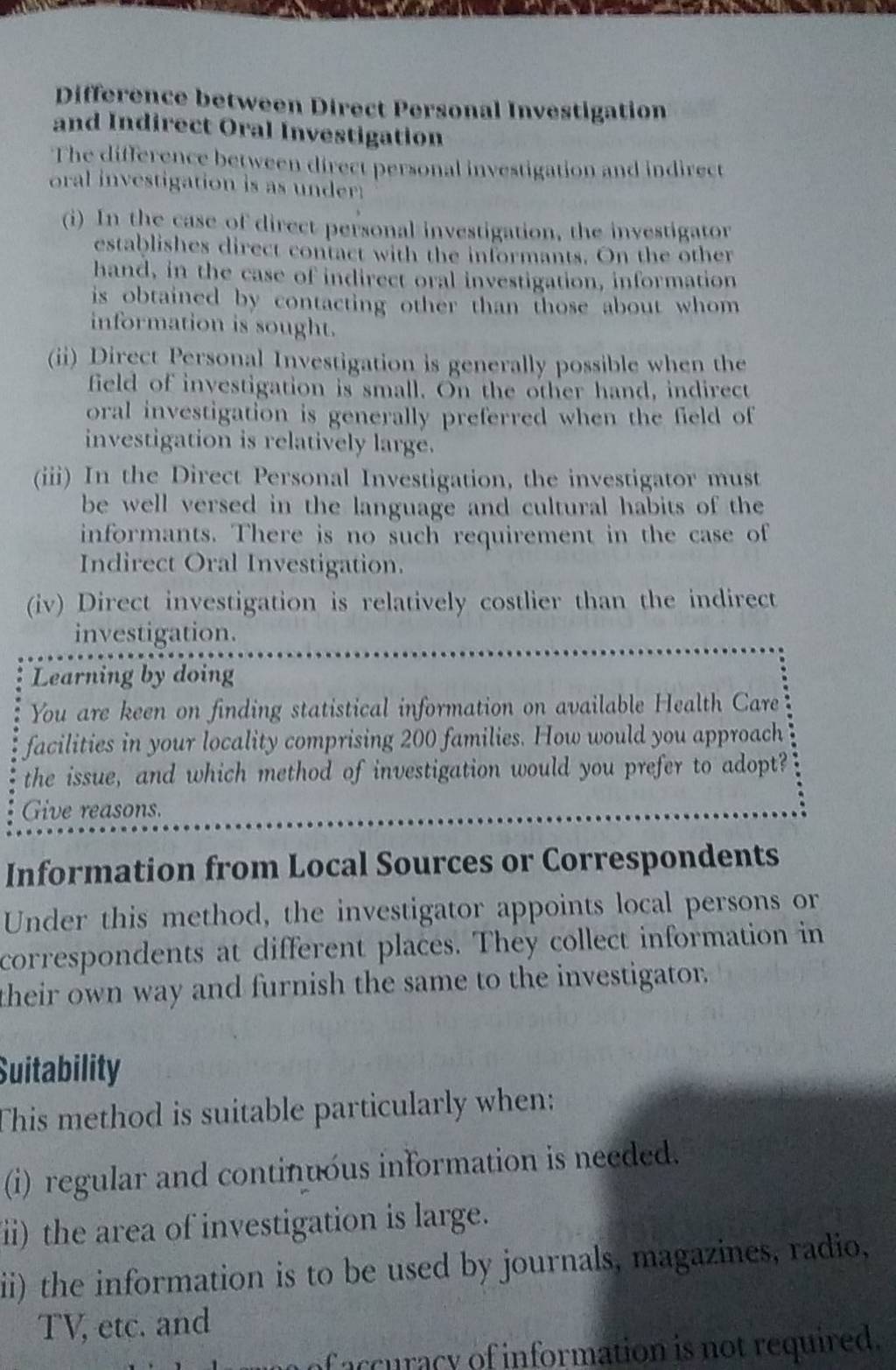Question
Question asked by Filo student

Difference between Direct Personal Investigation and Indirect Oral Investigation The difference beciveen diree personal investigation and indirect oral investigation is as undem
- In the case of direct peisonal investigation, the investigator establishes direct contact with the informants. On the other hand, in the case of indireet oral investigation, information is obtained by contacting other than those about whom information is sought.
- Direct Personal Investigation is generally possible when the field of investigation is small. On the other hand, indirect oral investigation is generally preferred when the field of investigation is relatively large.
- In the Direct Personal Investigation, the investigator must be well versed in the language and cultural habits of the informants. There is no such requirement in the case of Indirect Oral Investigation.
- Direct investigation is relatively costlier than the indirect investigation.
Found 6 tutors discussing this question
Discuss this question LIVE
9 mins ago
Filo tutor solution
Learn from their 1-to-1 discussion with Filo tutors.

Generate FREE solution for this question from our expert tutors in next 60 seconds
Don't let anything interrupt your homework or exam prep with world’s only instant-tutoring, available 24x7
Practice more questions on Human Physiology
Question 1
Easy
Views: 6,076
Question 3
Easy
Views: 5,459
Students who ask this question also asked
Question 1
Views: 5,942
Question 3
Views: 5,144
| Question Text | Difference between Direct Personal Investigation and Indirect Oral Investigation The difference beciveen diree personal investigation and indirect oral investigation is as undem |
| Topic | Human Physiology |
| Subject | Biology |
| Class | Class 11 |



